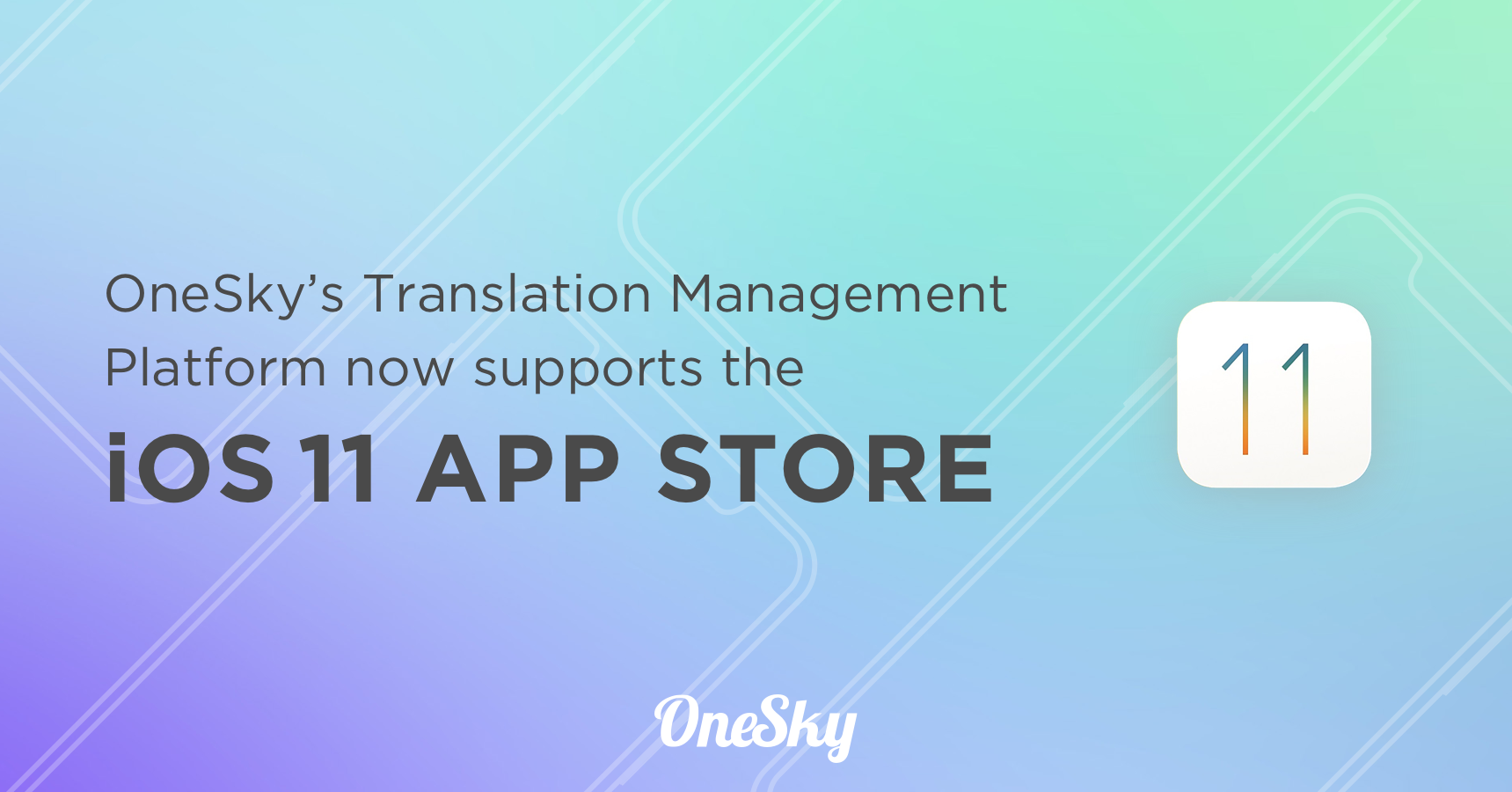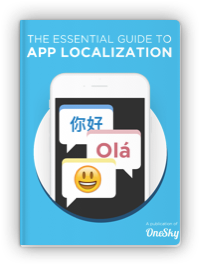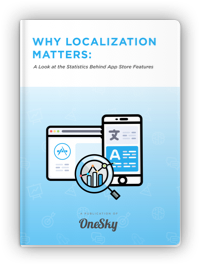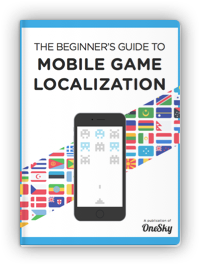Mastering App Store SEO: Key Tactics for Success
Curious about the best tool to get your app seen on the Apple App Store search radar? We’ll tell you: Your keyboard. App store keywords are essential to your marketing strategy and app store visibility. So much so, in fact, that Apple Developer released an entire endorsement for the practice — encouraging devs to keep up with the latest developments in app store optimization, or ASO.
Below, we’ve put together an expert guide that covers everything you need to know about mastering App Store SEO (and keeping your sanity in the process!)
The Basics of App Store Keywords Optimization
App stores work similarly to Google, using search engine optimization techniques to determine app visibility and relevancy for consumers. Learning how to use keywords — or words and phrases — in descriptions and metadata of your app listing is one of the best ways to accelerate your growth process.
Using the most relevant and correct keywords for your niche, app type, and audience is the first step to success here, preempting the execution and trial steps.
(We do want to note that we know that the “gold standard” result in the app stores is positive reviews. However, taking the time to incorporate keyword research and ASO strategy in your broader marketing strategy offers you a greater opportunity for profitability and client retention, putting you in front of the right eyes at the right time.)
Once you publish, you can continue to experiment and iterate with your app store listing to see what gets you the best results for your set goal.
Researching the Right Keywords: A Step-by-Step Guide
This begs the question: What keywords do I use in my app store listing?
There is no cut-and-dry formula for keyword success. However, generally speaking, the best keywords are…
- Relevant. They should matter to your target audience and should be related to your app or listing.
- Strategic. You’ll want to use keywords that point to an outcome rather than the pain point, as this can boost your conversion rate. People search for what they want, not what they are already experiencing.
- Diverse. You’ll want to include short-tail and long-tail keywords as you experiment and do your keyword research, appealing to a range of query types.
Now, the fun part is finding the right keywords to add to your short description, tripping the search algorithm to put you in front of potential users.
There are many ways you can do this. One of the most common ways to find new keywords in your niche is to do some competitor research, allowing you to see what the search algorithm favors with competitors in your industry.
(You might also want to go a little more in-depth with your research, experimenting with competitor apps to come up with new ideas for your own user experience).
The research process doesn’t have to be overwhelming. Here are some of our favorite ASO tools (or app store optimization tools) to help you find the most relevant keywords in your industry:
- AppTweak
- SensorTower
- Keyapp.top
For Mobile App Developers: Tailoring Keywords to Your Niche
If you haven’t defined your niche yet, you should. This simple step can inform your messaging (and, thereby, your metrics), getting you closer to your ideal customers and goals in a more efficient way.
Often, you’ll find that your niche has its own set of separate keywords from the “mainstream” ones, which you can leverage in every part of your listing: From your app name to your subtitle. While it may seem risky to “exclude” customers, doing this can boost your chance at downloads and success across the iOS App Store and Android shop.
P.S.: Don’t forget to mix up your keywords. It’s best to use short- and long-tail keywords to create the most impact in the app store algorithm.
Game Publishers and Developers: Optimizing for Target Audiences
Keyword research is nothing if not layered and nuanced. Game publishers and devs can get extra mileage from their keywords by choosing keywords that resonate with the search behavior of the demographic you’re targeting.
This research process might be a bit more involved, as you’ll need to search app reviews, app store search results, and forums to see the terms that your people might be searching for. (We promise that this step is worth the payoff!)
A shortcut we recommend is searching forums and social media platforms for any sort of theme-related keywords that are specific to genres, new apps, or social trends.
Software and SaaS Companies: Strategic Keyword Placement
Now that you’ve (likely) got a list of search terms to try in your app marketing strategy, you have to determine where you’re going to put them. (You can extend beyond the keyword field, we promise!)
Consider inserting your keywords in your…
- App description
- App preview text
- Product page (both in and out of the app store)
- Brand name (if possible)
- Long description textbox (without stuffing)
- App title line
- Description and preview text boxes
- Update or release notes
Don’t feel like you have to stick to a set of keywords, either. Feel free to revisit your list of keywords and explore new opportunities for a better chance at boosting your search ranking.
Localization Managers: Multilingual Keyword Optimization
Keywords play a tremendous role in your app store ranking, both in the Apple iOS store and the Google Play store. But did you know that they also can be a vital part of your localization strategy?
Keywords are a fantastic free way to put you in front of global audience members in a specific location, accelerating your global rollout. Plus, they can be seamlessly adapted to fit cultural and linguistic nuances — making them even more powerful than they already were.
Measuring the Impact: Tracking and Analytics
Tracking is key to figuring out the value that you’re getting from a specific approach, and keyword usage is no exception. There are plenty of tools for monitoring keyword performance out there, including:
- Appfigures
- TheTool
- SplitMetrics
- SensorTower
- AppAnnie
Once you get baseline values for your metrics, you can then tweak your strategy to get the most value and alignment from your keyword set.
Overcoming Challenges in Keyword Optimization
When it comes to keyword usage and app ranks, there are two primary areas of concern:
- Keyword abuse — Particularly in the areas of keyword stuffing and irrelevance. Many may be tempted to “stuff” irrelevant or high quantities of keywords to try to bolster app downloads and visibility in Apple Search ads, but this isn’t a solid strategy. Today’s algorithms are sophisticated — and while keyword use is one of many ranking factors, abuse of keywords can lead to fewer installs and throttled visibility.
Fix: Insert keywords naturally instead of forcefully, and you should be golden.
- Algorithm changes — Algorithms change, which can lead to temporary hiccups in app downloads or keyword rankings.
Fix: Ride them out, read up on them, and react. (Thankfully, it’s that simple!)
Enhancing Your ASO Strategy with OneSky
Ready to make the most out of your keyword usage? We’re here to help. Our comprehensive translation management system and localization suite are here to help you pick the most relevant and targeted keywords in your niche. For more information and to start for free, please visit our website. Sign up today!



 Written by -
Written by - 




 Written by
Written by 


